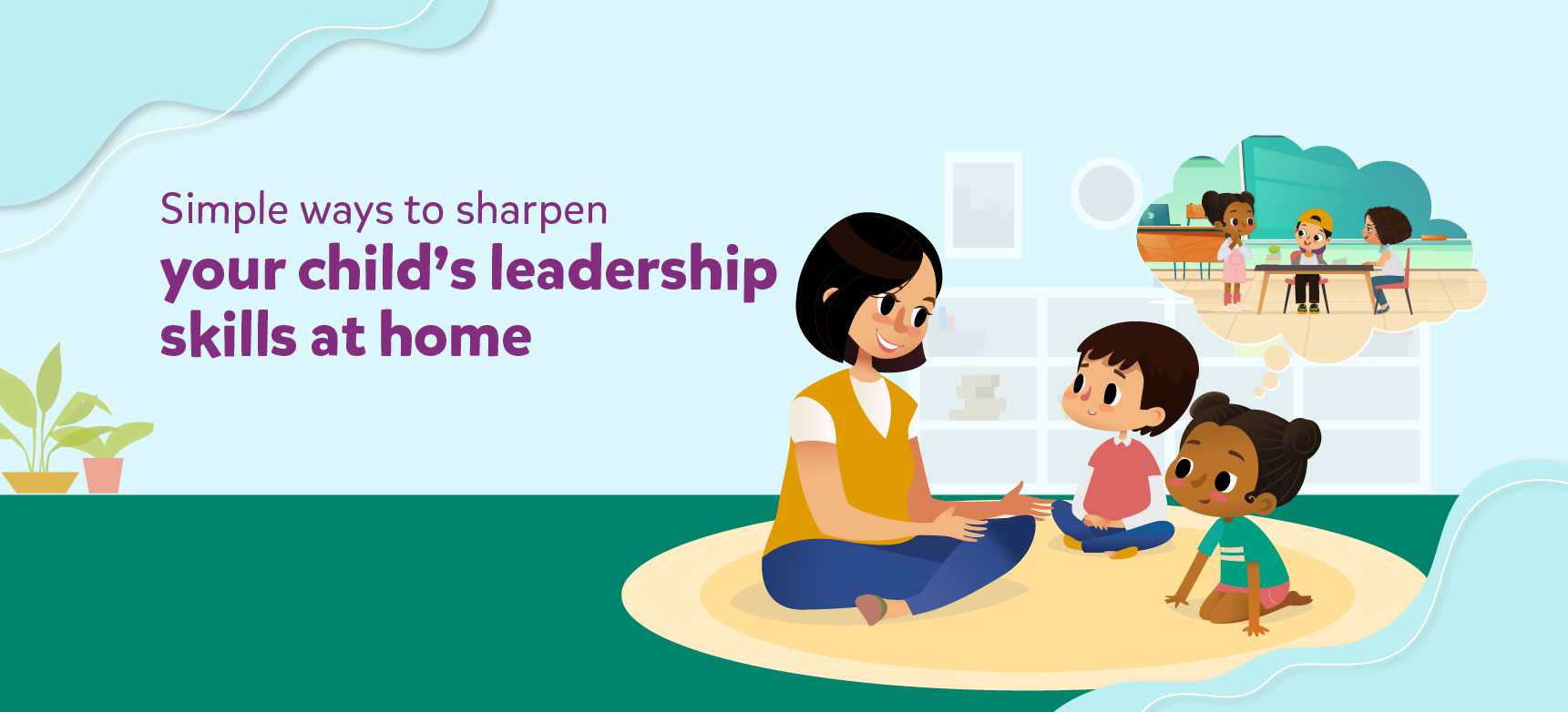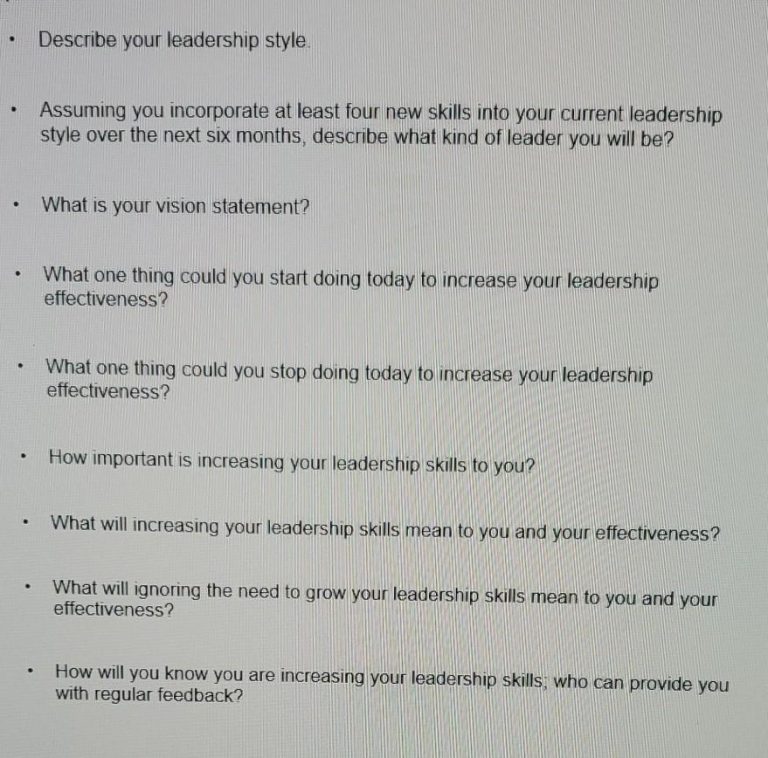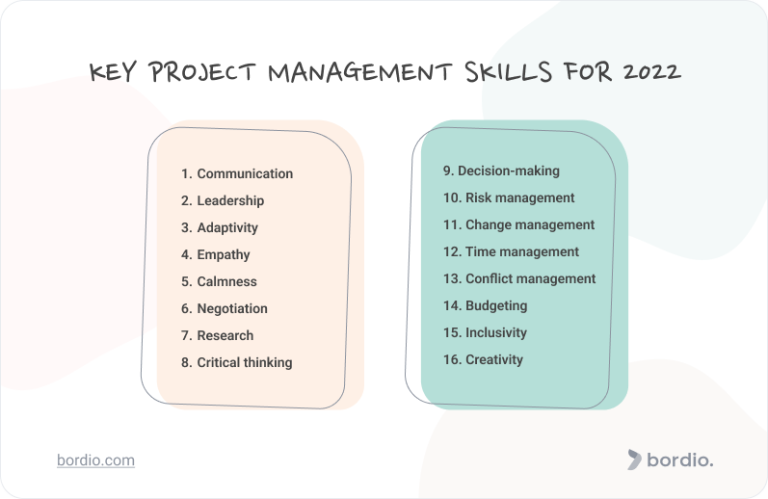How Did You Help Your Children to Develop Leadership Skills?
I encouraged my children to develop leadership skills through the promotion of teamwork and opportunities for decision-making. As parents, we have a crucial role in shaping the future leaders of tomorrow.
Nurturing leadership skills in our children is vital to help them navigate their personal and professional lives successfully. In my experience, I found that encouraging teamwork among my children played a significant role in the development of their leadership abilities.
By involving them in group activities, such as sports or volunteer work, they learned the importance of collaboration, effective communication, and motivating others towards a common goal. Additionally, I provided them with opportunities to make decisions, allowing them to take responsibility and develop problem-solving skills. Overall, fostering a supportive environment that emboldens our children to grow as leaders can contribute immensely to their personal growth and future success.

Credit: www.plr.me
Leading By Example
As a parent, I empowered my children to develop leadership skills by leading by example and fostering a supportive environment. Through my actions and guidance, they learned the importance of communication, problem-solving, and empathy, which helped them become confident leaders in various aspects of their lives.
Setting A Positive Example
Leading by example is one of the most effective ways to instill leadership skills in your children. As a parent, your actions speak louder than words. Children observe and mimic their parents, so it is crucial to be mindful of the messages you convey through your own behavior. By setting a positive example, you can shape your children’s behavior and encourage them to develop their own leadership skills. Here are some ways you can lead by example: 1. Communication: Encourage open and honest communication by actively listening and expressing your thoughts and feelings respectfully. This teaches children the importance of effective communication, which is a vital leadership skill. 2. Problem-solving: Demonstrate problem-solving skills by approaching challenges with a positive attitude and exploring different solutions. Involve your children in the process by seeking their opinions and ideas. This fosters their critical thinking skills and encourages them to take initiative. 3. Dedication: Show dedication and commitment in your own pursuits, whether it’s work, hobbies, or personal goals. Seeing your passion and determination will inspire your children to set their own goals and work hard to achieve them. 4. Confidence: Display confidence and self-assurance in your abilities. By embracing challenges and overcoming obstacles, you teach your children the value of self-belief and resilience. Encourage them to step out of their comfort zones and take risks.Demonstrating Responsibility And Accountability
Responsibility and accountability are fundamental aspects of effective leadership. It is crucial to demonstrate these traits and teach your children to take responsibility for their actions. Here’s how you can instill a sense of responsibility and accountability: 1. Delegate tasks: Give your children age-appropriate responsibilities and tasks. This teaches them the importance of taking ownership and completing their assigned duties. Gradually increase the complexity of tasks to challenge them and foster their problem-solving skills. 2. Teach decision-making: Involve your children in decision-making processes that are relevant to their lives. Discuss the decision-making criteria, weigh the pros and cons, and guide them in making informed choices. This helps develop their critical thinking skills and accountability for the outcome. 3. Admit mistakes: When you make mistakes, openly admit them and take responsibility. This teaches your children that nobody is perfect and that owning up to mistakes is an important part of personal growth and development. 4. Encourage self-reflection: Foster self-reflection by encouraging your children to evaluate their actions and behaviors. Help them identify areas for improvement and discuss strategies to rectify any shortcomings. This cultivates self-awareness and reinforces the importance of learning from one’s mistakes. By focusing on leading by example and demonstrating responsibility and accountability, you can help your children develop the essential leadership skills they need to succeed in life. Your consistent actions and positive influence will shape them into confident, responsible, and effective future leaders.
Credit: m.facebook.com
Encouraging Decision-making
I helped my children develop leadership skills by encouraging decision-making and providing them with opportunities to take charge and make choices. By fostering their independence and allowing them to make decisions, they gained confidence and developed essential leadership qualities.
Providing Opportunities For Decision-making
Encouraging decision-making skills in your children is essential for their leadership development. By providing them with opportunities to make decisions, you empower them to take charge of their own lives and develop the confidence needed to lead others. There are several ways you can foster this crucial skill in your children. One effective approach is to involve them in decision-making processes at home. For instance, you can ask their opinion when planning family activities or let them choose their own outfits for the day. This not only helps them feel valued but also teaches them to consider different options and make choices based on their preferences. Additionally, you can encourage your children to engage in extracurricular activities that require decision-making. Whether it’s joining a sports team or participating in a debate club, these activities provide an ideal platform for your children to practice weighing different possibilities and making informed decisions in a supportive environment.Allowing Your Child To Learn From Mistakes
Allowing your child to learn from their mistakes is another crucial aspect of developing their decision-making skills. Mistakes are valuable learning opportunities that teach resilience, problem-solving, and accountability. Here are some ways you can support your child in this process: Firstly, it’s important to create a safe and non-judgmental space for your child to discuss and reflect on their mistakes openly. Encourage them to talk about what went wrong and why, and help them identify the lessons they can learn from the experience. By doing so, you instill a growth mindset and teach them that mistakes are stepping stones to improvement. Furthermore, avoid rescuing your child from every mistake they make. While it may be tempting to intervene and fix things for them, it’s crucial to let them face the consequences of their choices. This not only helps them internalize the impact of their decisions but also promotes problem-solving skills as they work through challenges independently. In conclusion, encouraging decision-making in your children is vital for their leadership development. By providing opportunities for decision-making and allowing them to learn from their mistakes, you equip them with the skills they need to lead confidently and make informed choices.Developing Communication Skills
Developing communication skills is crucial for helping children develop leadership qualities. Effective communication enables children to express their ideas, listen actively, and collaborate with others. Here are some strategies to encourage open and honest communication and teach effective listening skills.
Strongencouraging Open And Honest Communication/strong
To foster open and honest communication, create an environment where children feel safe to express their thoughts and feelings. Here’s how you can encourage such communication:
- Be an active listener: Give your full attention to your child when they are speaking and demonstrate interest in what they have to say.
- Empathize and validate emotions: Show understanding and acknowledge your child’s emotions when they share their experiences. This helps create trust and openness.
- Create opportunities for communication: Engage in regular conversations with your child, whether during family meals or designated quality time. These moments provide platforms for them to share their thoughts.
- Encourage questions and discussions: Promote curiosity by encouraging your child to ask questions and engage in discussions about various topics. This cultivates their critical thinking skills and strengthens communication.
Strongteaching Effective Listening Skills/strong
Listening skills play a vital role in effective communication. Teaching your child to be a good listener enhances their understanding and ability to connect with others. Consider these strategies:
- Lead by example: Be a good listener yourself and demonstrate active listening when your child speaks. Maintain eye contact and avoid interrupting, which models respectful listening.
- Practice turn-taking: Encourage your child to take turns in conversations. Teach them to listen attentively without interrupting and respond appropriately once the speaker has finished.
- Teach nonverbal cues: Help your child understand nonverbal cues, such as body language and facial expressions, which can provide valuable context during communication.
- Engage in reflective listening: Teach your child to summarize or repeat what the speaker has said. This technique promotes understanding and validates the speaker’s message.
By encouraging open and honest communication and teaching effective listening skills, you empower your child to develop strong communication abilities, which form a solid foundation for leadership development.
Promoting Teamwork And Collaboration
To cultivate leadership skills in children, I encouraged teamwork and collaboration through engaging group activities, projects, and discussions. By fostering a sense of unity and collective effort, my children developed essential leadership qualities such as effective communication, delegation, and problem-solving skills.
Facilitating Group Projects And Activities
Encouraging your children to participate in group projects and activities is an effective way to promote teamwork and collaboration. By engaging in these activities, children learn the importance of working together towards a common goal. It helps them develop effective communication skills, problem-solving abilities, and an understanding of different perspectives. Through group projects, your children get the opportunity to brainstorm ideas, delegate tasks, and collaborate with their peers. This fosters creativity and enhances their ability to work as part of a team. It teaches them how to rely on others for support and how to contribute their own unique talents and skills to achieve success. One way to facilitate group projects is by providing your children with a platform or space where they can comfortably work together. This could be a designated area in your home, a local community center, or even a virtual space where they can meet and collaborate online.Teaching Conflict Resolution Skills
Conflict is an inevitable part of any group setting, and it’s essential to teach your children how to handle and resolve conflicts effectively. By developing their conflict resolution skills, they learn how to navigate disagreements and maintain positive relationships with their peers. Start by teaching your children the importance of active listening – truly hearing and understanding the perspectives of others. Encourage them to express their own thoughts and feelings in a respectful and constructive manner. This helps create an environment where conflicts can be openly discussed and resolved. It can also be helpful to teach your children strategies for finding common ground and reaching compromises. This could involve brainstorming solutions together, weighing the pros and cons of different options, and encouraging empathy towards others’ perspectives. As a parent, you can lead by example and demonstrate effective conflict resolution skills in your own interactions. This teaches your children that conflicts are a normal part of relationships and can be resolved through open communication and compromise. Overall, by actively promoting teamwork and collaboration through group projects and teaching conflict resolution skills, you can help your children develop valuable leadership qualities. These skills will not only benefit them academically but also in their future careers and personal relationships.Nurturing Self-confidence
Building self-confidence is a crucial aspect of developing leadership skills in children. It is about helping them believe in their abilities and fostering a positive self-image. By nurturing self-confidence, you enable your children to tackle challenges, make decisions, and lead with conviction.
Recognizing And Celebrating Achievements
One effective way to nurture self-confidence in children is to recognize and celebrate their achievements, no matter how big or small. Acknowledging their successes not only boosts their confidence but also validates their efforts and hard work.
As parents, it is important to be attentive and observant to identify achievements that might go unnoticed. Whether it’s completing a task, solving a problem, or demonstrating positive behavior, make sure to acknowledge and praise your children. Celebrate their accomplishments verbally, with a hug, or even a simple high five. These gestures go a long way in showing them that their efforts are valued and can build their self-confidence.
Encouraging A Growth Mindset
Another way to nurture self-confidence in children is by encouraging a growth mindset. This mindset emphasizes the belief that abilities and intelligence can be developed through effort and practice. By promoting a growth mindset, you instill the belief in your children that they can improve and learn from their mistakes.
Help your children understand that failure is a part of the learning process and not something to be feared. Encourage them to view challenges as opportunities for growth and to approach tasks with a positive attitude. Remind them that with perseverance and dedication, they can overcome obstacles and achieve their goals.
Furthermore, guide your children to set realistic goals and break them down into smaller, achievable steps. This allows them to experience success along the way, boosting their self-confidence and motivation to pursue further challenges.
In conclusion, nurturing self-confidence in children is instrumental in their overall leadership development. By recognizing and celebrating achievements and encouraging a growth mindset, parents can help their children build the self-belief necessary to lead with confidence and make positive impacts in their lives and the lives of others.

Credit: m.facebook.com
Frequently Asked Questions On How Did You Help Your Children To Develop Leadership Skills?
How Can I Help My Children Develop Leadership Skills?
Encourage them to take on responsibilities, promote problem-solving skills, and provide opportunities for team-building activities.
What Are Some Effective Ways To Teach Leadership Skills To Children?
Allow them to make decisions, provide constructive feedback, and guide them in setting and achieving goals.
Why Is Developing Leadership Skills Important For Children?
It helps them become confident decision-makers, enhances social and communication skills, and prepares them for future success.
Conclusion
As parents, fostering leadership skills in our children is paramount for their future success. By providing opportunities for them to take on responsibilities and make decisions, we empower them to develop crucial leadership qualities. Nurturing their confidence, communication skills, and problem-solving abilities lays a solid foundation for their journey towards becoming effective leaders.
Encouraging them to engage in extracurricular activities, community service, and positive role models further enhances their leadership development. Through our guidance and support, we can help our children unlock their leadership potential and equip them with the tools they need to thrive in an ever-changing world.




